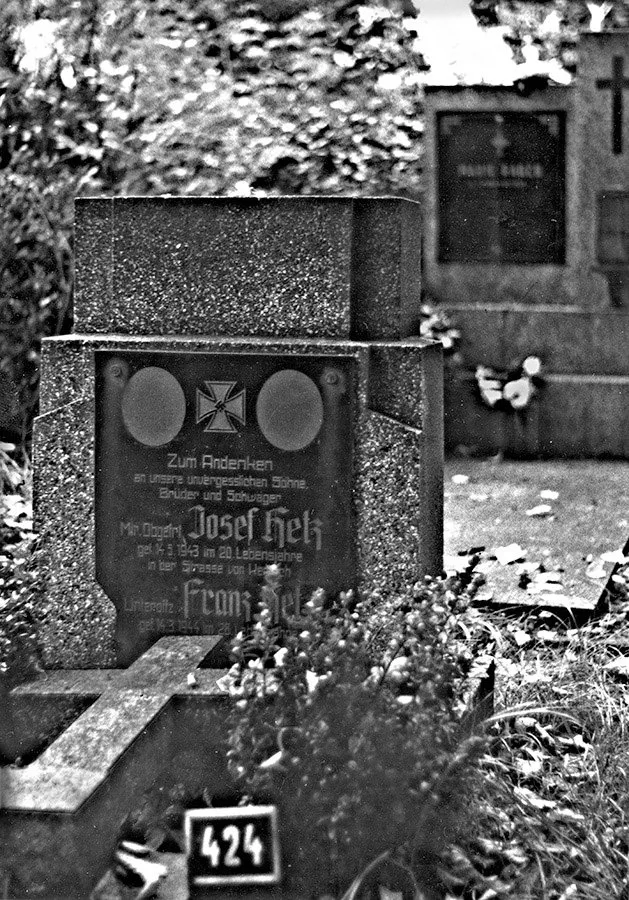On an improvised skiing trip to Czechoslovakia in the early nineties, we ended up in a small village near the Polish border. A very old and quaint village it was; no paved streets, no street lights, no traffic signs. All the sharp edges were blunted by a thick layer of snow. I loved it, it was like a Dutch town in the 1930s from the tales of my grandfather.
As we walked around to get our bearings, we found this grave in the local cemetary:

Olympus XA, Ilford FP4+
It is the grave in Czechoslovakia of two brothers, Josef and Franz Hetz, born in Czechoslovakia, who died fighting in the German army.
Before WWII, Czechoslovakia had a large minority of Germans, about 22% of the total population. They had lived there for a long time at relative peace with their neighbours. After WWI, some controversies developed between the Czechs and the German population groups about what country the German speaking parts should belong to.
Hitler, making himself the advocate of ethnic Germans, used these controversies as a basis for his claim of parts of Czechoslovakia in 1938. Trying desperately to avert war, Czechoslovakia was sold down the river by Great Britain and France, and Hitler got what he wanted: the Sudetenland was annexed.
Czechoslovakia had a good standing army and could have given the Germans at least a bloody nose in case of an invasion. Unfortunately, the parts of Czechia that were ceded to Germany contained Czechoslovakia's main line of defense, enabling Hitler, against the treaties, to occupy the rest of Czechia without much trouble in 1939. Poland and Hungary also occupied small parts. The Slovak part declared its independence and became an ally of the Germans.
After the war, most Germans were expelled from Czechoslovakia, as had been decided at the Potsdam conference. These deportations were not without violence; about 25000 Germans died en route.
So, this is how two Czech brothers with German names came to fight in the German army, died for Germany, and were buried, or at least remembered with a headstone, in their ancestral Czechia, under a German war cross with a swastika.
Their portraits are missing from the grave stone; maybe their deported family took them with them on their way into a destroyed Germany.